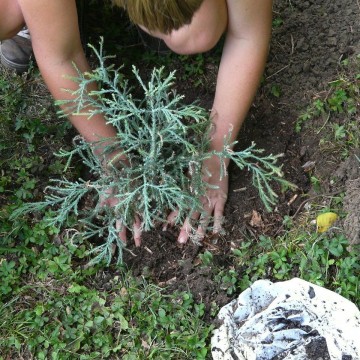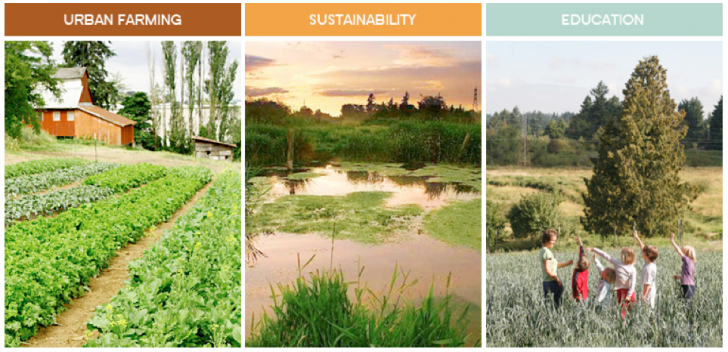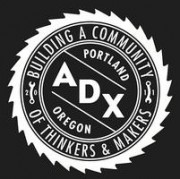Portland Made: Zenger Farms, Growing the Next Generation of Farmers
Monday, May 11, 2015

People seem hungry again to learn how things are made and to directly support the makers of products they buy. ADX has had over 75,000 people tour through our facility from all over the world and those numbers are increasing rapidly by the day as the Maker Movement gains international attention. Many Portland Made companies are opening up their factories for regular tours so that consumers can see “how the sausage is made” and then buy direct from the factory store. These direct purchases are the most beneficial for the makers, for our communities and for our city. It is estimated that for every dollar spent purchasing from a local maker there is an 8x multiplier effect in the local economy. This means better schools, bustling main streets and thriving communities.
Portland Made contributing writer Peggy Acott sat down with David Perry at Zenger Farm to find out more about their new Urban Grange facility and how they are educating the next generation of farmers and healthy eaters.
Zenger Farm, one of the nation’s largest urban educational farms, is in a unique position to champion the maker movement as it applies to food.
David Perry, Program Director at Zenger Farm believes that food production and manufacturing - the two fundamental maker industries in America - have both been diminishing since the industrial upswing that occurred after World War II. In terms of food this has meant “Victory Gardens started to disappear and TV dinners started to appear.”
Perry sees farmers as makers in every sense of the word. “They are the engineers of agriculture,” possessing the skills and knowledge necessary to make, repair and innovate their methods and equipment. This helps them to be more efficient and their harvest more productive. Many of these skills haven’t been written down, but passed from person to person – father to child, boss to apprentice. The fact that the average age of America’s farmers still lingers in the mid-50s, the lack of upcoming farmers to replace them feels worrisome to Perry and many others.
In the same way, Perry sees cooking as another ultimate making skill, one tied to the intrinsic human need for nourishment as well as to traditional cultures. As with farming, there was the risk of much of this knowledge being lost, with the mobility and disbursement of extended families; the growing reliance on pre-made food in a society where more people were becoming busier and cooking less.
Zenger Farm has stepped up to address these issues in concrete and meaningful ways:
They have created a Farmer Apprenticeship program, combining classroom knowledge, field experience, business development and food justice work, along with field trips to regional working farms. It is a program somewhat unique to Zenger Farm, due to its location in an urban setting with close proximity and interaction with its surroundings.
With the recent completion of their new building (aptly named The Urban Grange), the farm can now provide access to a commercial kitchen – a necessary component in the success of small vendors of specialty, packaged foods. Perry says the farm hopes to eventually become “a hub for resources” supporting local small food businesses, especially outer SE Portland’s “micro-entrepreneurs,” not only by providing much-needed commercial kitchen space, but also by teaching important business skills and connecting these new businesses to a network of local retail stores and caterers; giving them a low-risk way to prototype their products as vendors at the farm-sponsored Lents International Farmers Market.
Perry sees the farm’s involvement in the making of food as having not only a professional impact, but also a public one. The role of education, peer mentorship and passing traditional cooking skills through generations is paramount. To that end, Zenger Farm has developed programs that bring people from the community together to learn from each other as well as from professional chefs and cooks: classes in everything from Healthy Eating on a Budget to Canning 101 provide important practical skills and an opportunity to share knowledge. The “community kitchen” environment in which everyone learns, is especially empowering for the low-income families that surround the farm.
For Perry, this is a perfect “food justice model” that goes hand in hand with a good food-related maker movement.
For more information about Zenger Farm visit their website, or better yet, get involved by volunteering and mentoring the next generation of makers.

---------------------------------------------------

Portland Made is a digital storytelling platform and advocacy center for Portland's Maker Movement. We do 2 features a month on Portland Makers; connect makers with more local, national and international markets; connect makers with local professional and manufacturing resources; advocate for makers with politicians at all levels of government; work with PSU on an annual survey that captures the economic power of the Maker Movement; help makers find real estate; and promote Portland makers with local and national media.

Related Articles
- Portland Made: Food Incubator, Kitchen Cru
- Portland Made: Lamp Designer Shannon Guirl
- Portland Made: Leather Craftsman Geoff Franklin
- Portland Made: Oregon Kombucha Starter Kit
- Portland Made: Product Innovator, Sam Pardue of Indow
- Portland Made: Straight Razor Maker Scott Miyako
- Portland Made: Woodworker Josh Mabry
- Portland Made: Working Together ADX + Togetherfarm




 Delivered Free Every
Delivered Free Every
Follow us on Pinterest Google + Facebook Twitter See It Read It